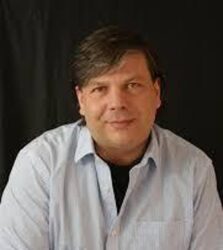Mark Boccuzzi
Fostering Public Engagement with After-Death Communication Experiences Through Art and Technology
Abstract
After-death communication experiences (ADCs) have been categorized as spontaneous, facilitated, assisted, and more recently, as requested. ADCs are common and can be helpful in the grieving process and the reduction of death anxiety. Research also suggests that the potential positive benefits of ADCs are not limited only to the experiencer, but may extend to others who learn about the ADC experiences of others. The normalization of those experiences may aid in removing the social stigma, and the resulting stress that may follow ADCs. Currently, collections of ADC experiences exist, but those accounts are mostly captured as text or video interviews. While helpful, those formats may not be appealing or accessible to all audiences. The Audrey Project, at the Windbridge Research Center, is forming collaborations between ADC experiencers, researchers, mental health professionals, artists, and technologists. Together, these multidisciplinary teams are transforming submitted, written reports of ADCs into rich, multimedia (video, images, sound, music, and interactivity) exhibitions. The goal is to create a library of these enhanced experiences that help foster in-depth public engagement with ADCs, promote healing, and further normalize ADC experiences. In line with the mission of the Center, the compiled library will be offered online to clinicians, researchers, and the general public as a free, open-access resource.
Presenter Bio
 Mark Boccuzzi is a research scientist and innovator working at the intersection of science, technology, education, and interactive visual arts. He currently serves as the executive director of the Windbridge Research Center, a non-profit organization dedicated to the study of dying, death, and what comes next. He is also managing editor of the open access, free, peer-reviewed journal Threshold: Journal of Interdisciplinary Consciousness Studies. Since 2008, Boccuzzi has been researching modern American, secular, mental mediums. He has co-authored over a dozen peer-reviewed papers, book chapters, and presentations that cover aspects of mediumship, including accuracy, physiology, and the potential therapeutic applications of mediumship readings for the grieving. He resides in Tucson, Arizona with his wife and research partner, Julie Beischel, PhD, and their two rescue dogs, Ada Grace and Toggle.
Mark Boccuzzi is a research scientist and innovator working at the intersection of science, technology, education, and interactive visual arts. He currently serves as the executive director of the Windbridge Research Center, a non-profit organization dedicated to the study of dying, death, and what comes next. He is also managing editor of the open access, free, peer-reviewed journal Threshold: Journal of Interdisciplinary Consciousness Studies. Since 2008, Boccuzzi has been researching modern American, secular, mental mediums. He has co-authored over a dozen peer-reviewed papers, book chapters, and presentations that cover aspects of mediumship, including accuracy, physiology, and the potential therapeutic applications of mediumship readings for the grieving. He resides in Tucson, Arizona with his wife and research partner, Julie Beischel, PhD, and their two rescue dogs, Ada Grace and Toggle.